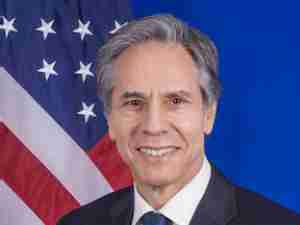Relations between the world's two fastest growing major economies are tense, despite the booming trade relationship between them. Nearly 40 years after they fought a war there are still rifts over disputed borders, and suspicion in New Delhi over China's regional ambitions and its close ties with arch-rival, Pakistan.
But both Wen and Indian Prime Minister Manmohan Singh exchanged vows of amity and goodwill, appearing to brush under the carpet a series of differences that have dogged relations for decades.
"I believe with our joint efforts, through the visit, we'll be able to raise our friendship and cooperation to a high level in the new century," said Wen, standing alongside Singh at the Indian presidential palace after a formal red-carpet welcome ceremony.
Wen's visit, the first by a Chinese premier to India in five years, has looked carefully choreographed to improve ties between two countries that between them are home to more than a third of the world's population.
At least 34 Tibetan protesters were arrested for taking part in anti-China demonstrations in New Delhi.
Arriving with more than 300 business leaders on Wednesday, Wen said that India and China were not rivals and there was room in the world for both powers to develop.
"There is a trust deficit, a trade deficit but certainly not a charm deficit," said broadcaster CNN IBN Deputy Editor Sagarika Ghose.
Singh responded in kind to Wen's effusive words before they went into a meeting behind closed doors: "A strong partnership between India and China will contribute to long-term, peace, stability, prosperity and development in Asia and the world."
Boosting Trade
China's willingness to increasingly engage with India on key issues such as their dispute over boundaries, as well as free trade talks, could stem from a realisation in Beijing that China needs India's support in increasingly significant international platforms such as the G20.
The two sides said they wanted bilateral trade to cross $100 billion by 2015 from $60 billion in 2010, partly driven by greater access for Indian firms to Chinese markets.
Wen offered plenty of compromises during his visit but gave few details on when and how the thorny issues, including reducing India's trade deficit with China, would be addressed.
India's trade deficit with China is by far the highest among its trade partners and could touch $25 billion this year, which would account for around a fifth of India's total expected annual deficit.
India has sought to diversify its trade basket, but raw materials and other low-end commodities such as iron ore still make up about 60 percent of its exports to China.
"We would like our pharmaceuticals, we would like our agricultural commodities and we would like our IT services, all of which we are brand leaders internationally, to come into China," said Indian Foreign Secretary Nirupama Rao said.
India and China are the world's fastest-growing major economies. But India fears China wants to curtail its rise as a global power, and is concerned about Beijing's close security ties with Pakistan where Wen arrives on Friday on the second part of his trip.
India and Pakistan have fought three wars since independence from Britain in 1947 and Delhi broke off peace talks after Pakistani militants attacked Mumbai in 2008, killing 166 people.
The China-India statement outlined Beijing's support for U.N. Security Council Resolution 1267, which calls for sanctions against the Lakshar-e-Taiba militant group that New Delhi blames for the attack and accuses Pakistan of harbouring.
India also fears China wants to restrict its global reach by possibly opposing its bid for a permanent U.N. Security Council seat or encircling the Indian Ocean region with massive projects fr










